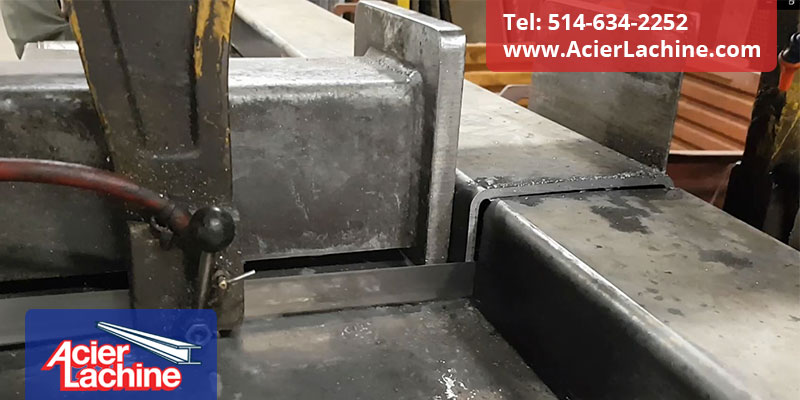
CARBON STEEL
Carbon steel (fr: Acier au carbone): A type of steel in which the primary alloying element is carbon. One of the most important factors determining the steel’s mechanical properties is the level of carbon contained it. Carbon steels have no more than 1.65 percent manganese, 0.6 percent copper, or 0.6 percent silicon. Carbon steels come with varying levels of formability. Generally, the more formable grades are more costly. Carbon steel is also called mild steel.
CDS TUBE
CDS tube (fr: Tube CDS): The abbreviation for Cold Drawn Seamless Tube. Produced from carbon steel and various alloy grades, CDS tubes have better surface finish, closer dimensional tolerances, and higher mechanical properties than the corresponding grades of hot finished seamless tubes.
CIRCULAR SAW CUTTING
Circular Saw Cutting (fr: ): Using a circular saw with a rotating blade for cutting metal, wood, or other materials.
CNC MACHINING
CNC Machining (fr: ): Using computer numerical control (CNC) machines for precise drilling, punching, and other machining operations.
COIL
Coil (fr: Bobine): A sheet of steel that is wrapped around a mandrel into a roll.
COLD BENDING
Cold Bending (fr: ): Bending metal at room temperature without applying heat.
COLD ROLLED
Cold rolled (CR)/(fr: Laminé à froid): A class of metal that received additional handling after being hot rolled, pickled, and oiled. The metal is moved through a set of rollers, which provides the work piece with uniformed thickness and improved smoothness of the surface. This process is done at room temperature.
COLD SAW CUTTING
Cold Saw Cutting (fr: ): Cutting metal using a circular saw with a coolant to reduce heat buildup.
COLD WORKING
Cold working (fr: Travail à froid): The permanent plastic deformation of a metal below the temperatures of its recrystallization, normally at room temperature.
COLD-DRAWN
Cold-drawn (fr: Etiré à froid): The passing of an unheated material (metal wire, bars, etc.) through a die to reduce its dimensions, toughen and improve the surface finish.
CORROSION
Corrosion (fr: Corrosion): Chemical or electrochemical deterioration of a metal/alloy.
C-SECTIONS
C-Sections (fr:): Referring to the C-shaped cross-section of these structural members.
CUT TO SIZE
Cut to size (fr: Couper à la taille): The result of an object cut to a proper size/length.

